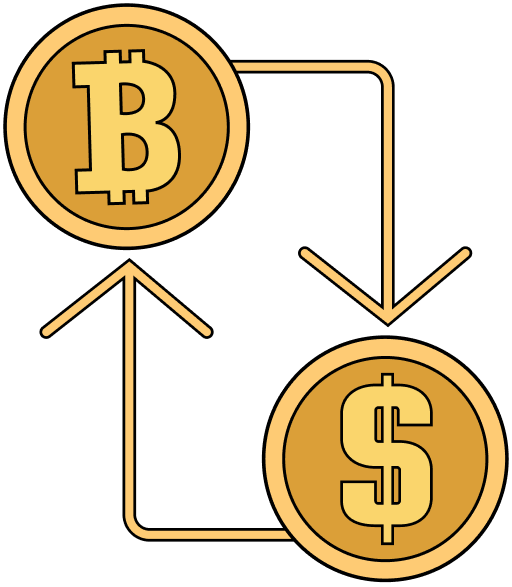Introduction
Coineal is a cryptocurrency exchange that started in 2018 with the aim of creating a global platform for trading digital assets. Initially, the exchange gained traction in Asia, particularly in China, Korea, and Japan, before broadening its reach to users worldwide. Coineal became recognized for its extensive token listings, high trading volumes during peak periods, and its focus on initial exchange offerings (IEOs). The platform combined centralized trading features with community-driven initiatives, positioning itself as a notable participant in the cryptocurrency industry during its active years.
History and Background
Coineal launched during a period of rapid growth for crypto marketplaces, when exchanges were pivotal in connecting projects with investors. The exchange presented itself as an international trading hub with presence in multiple Asian markets. By leveraging regional partnerships and simplifying access for local users, Coineal successfully attracted participants from some of the busiest crypto economies.
In its early years, the platform stood out for supporting numerous altcoins, including tokens from emerging blockchain projects. It also introduced IEOs, a popular fundraising mechanism in 2018–2019, enabling startups to raise capital directly through the platform. This approach drew both traders seeking opportunities and projects seeking visibility.
Over time, Coineal expanded by listing hundreds of tokens, offering margin trading, and adding community-oriented features. Its model mirrored other large exchanges but emphasized ease of access for Asian users.
Technology and Trading Platform
Coineal operated on a centralized trading model, requiring users to deposit funds into wallets managed by the exchange before trading. The platform was designed to handle high trading volumes with low latency, critical during the market growth of 2017–2019.
Key technical features included:
- Trading interface: Web and mobile-friendly, supporting spot trading across hundreds of cryptocurrencies.
- Security features: SSL encryption, cold wallet storage for most funds, and two-factor authentication (2FA) for account protection.
- Token listings: Fast-track process for blockchain projects to list tokens, often for publicity and fundraising.
Although not cutting-edge, the platform’s ability to handle high volumes and list tokens quickly appealed to traders seeking speed and variety.
Role of Initial Exchange Offerings (IEOs)
A prominent feature of Coineal was its involvement in IEOs. IEOs, similar to ICOs but conducted on exchanges, provided investors with greater confidence due to the exchange’s participation.
Coineal hosted IEOs for projects across sectors such as gaming, finance, and decentralized applications. By listing on Coineal, projects gained immediate access to a large trader base. For investors, the exchange acted as a gatekeeper, lending legitimacy to the offerings.
However, IEOs carried risks; not all projects delivered on promises. Coineal’s support for these offerings reflected its focus on new projects but also exposed it to scrutiny when some underperformed.
Global Presence and User Base
Coineal’s user base was largely concentrated in Asia, particularly China, Korea, and Japan. The platform also aimed for international expansion, offering English services and catering to global markets. At its peak, Coineal reported millions of registered users and high daily trading volumes, ranking among top exchanges.
The exchange developed local communities through partnerships, ambassador programs, and region-specific promotions. While effective, these efforts faced challenges in stricter jurisdictions.
Despite its Asian focus, Coineal remained accessible worldwide, enabling users to trade as long as they adhered to local laws.
Security and Trust Issues
Like many exchanges of its time, Coineal faced criticism regarding security and transparency. The platform implemented standard protective measures, including cold storage and 2FA. Nevertheless, some questioned the authenticity of reported trading volumes, suggesting potential wash trading.
Trust was also affected by IEO performance. Some users benefited from early access, while others criticized the platform for listing projects that later failed.
Although Coineal avoided major hacks, concerns about accountability and transparency impacted its reputation over time.
Token Listings and Liquidity
Coineal was known for aggressive token listings, appealing to traders interested in newly launched or smaller cryptocurrencies. The exchange at one point supported hundreds of trading pairs, beyond major coins like Bitcoin and Ethereum.
Liquidity varied. Major pairs like BTC/USDT and ETH/USDT had substantial volumes, while smaller altcoins often faced volatility. This reflected the broader challenge of rapid listings not always translating into active markets.
Decline in Activity
By the early 2020s, Coineal’s prominence declined due to several factors:
- Increased competition: Larger exchanges such as Binance, Huobi, and OKEx drew more users with advanced features and stronger branding.
- Regulatory tightening: Stricter global regulations limited operations for less transparent platforms.
- Trust concerns: Reports of inflated trading volumes and underperforming IEO projects reduced user confidence.
As a result, Coineal lost visibility, and most traders migrated to more reputable exchanges.
Legacy and Community Role
Despite its decline, Coineal contributed to the history of cryptocurrency exchanges, especially during the IEO boom. Smaller blockchain projects used Coineal to enter markets, raise funds, and reach traders more easily than on larger exchanges.
Its focus on accessibility, international reach, and rapid listings reflected an era when speed and experimentation often outweighed regulation and long-term stability. Coineal exemplifies both opportunities and risks of cryptocurrency trading platforms in the late 2010s.
Conclusion
Coineal, launched in 2018, specialized in offering extensive trading pairs and supporting initial exchange offerings, with a focus on Asia. It gained recognition for rapid growth and numerous token listings but faced challenges from competition, regulations, and transparency concerns. While activity has slowed, Coineal played a key role in exchange-based fundraising and altcoin adoption during its formative period, illustrating the promise and pitfalls of rapidly expanding cryptocurrency exchanges.














 Twitter
Twitter
 Telegram
Telegram
